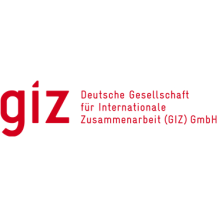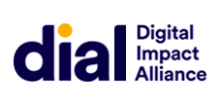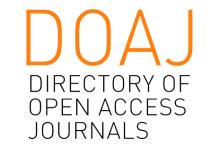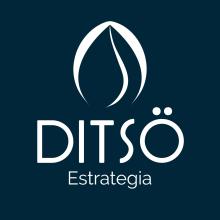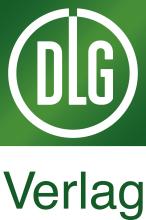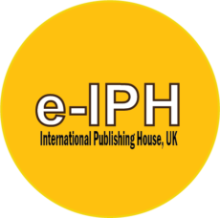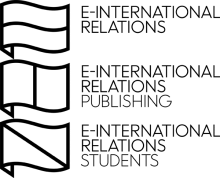Le bibliothèque du foncier comprend des ressources provenant de plus de 1 890 fournisseurs d'informations nationaux et internationaux. Découvrez les organisations et les institutions qui utilisent le Land Portal pour partager leurs recherches, leurs données et leurs histoires en libre accès.
Department of Agricultural Economics, Michigan State University
Our Mission
- We create, preserve, and disseminate knowledge through research, teaching, and outreach.
- We apply knowledge to help individuals lead more productive lives, and to assist in the development and improvement of firms, organizations, communities, and public institutions.
- We seek to contribute to Michigan, the nation, and the world. We emphasize applied and disciplinary contributions especially to the economic and managerial effectiveness of firms in the food and agricultural sector, and to the sustainability of agricultural production, environmental resources, and rural communities.
- As educators, we work with students, leaders, innovators and problem-solvers.
- We are committed to excellence across all our programs, both domestic and international.
Department of Agriculture Forest and Fisheries (South Africa)
Vision
United and transformed agriculture, forestry and fisheries sector that ensures food security for all and economic prosperity.
Mission
Advancing food security and transformation of the sector through innovative, inclusive and sustainable policies, legislation and programmes.
Values
- Drive: driven to deliver excellent service through leadership and professionalism
- Attitude: being an ambitious, passionate, reliable and dedicated workforce
- Fairness: acting with objectivity, empathy, integrity and transparency
- Focus: focusing on people, economic and rural development
Department of Economics and Resource Management, Norwegian University of Life Sciences
NMBU's mission is to contribute to the well-being of the planet. Our interdisciplinary research generates innovations in food, health, environmental protection, climate and sustainable use of natural resources.
About NMBU
NMBU's research is enabling people all over the world to tackle the big, global challenges regarding the environment, sustainable development, how to improve human and animal health, renewable energy sources, food production, and land- and resource management.
Department of Justice and Constitutional Development (South Africa)
The Department of Justice and Correctional Services is the justice ministry of the South African government. The department provides administrative and financial support to the court system and the judiciary (which are constitutionally independent of the executive), oversees the National Prosecuting Authority, provides legal advice and representation to organs of state, facilitates law reform and is responsible for the country's Correctional Services.
Derecho, Ambiente y Recursos Naturales (DAR)
Derecho, Ambiente y Recursos Naturales (DAR) es una organización civil sin fines de lucro que desde sus inicios, en el año 2004, ha realizado acciones para contribuir al desarrollo del país a partir del manejo y aprovechamiento sostenible de sus recursos naturales y la gestión del medio ambiente en la Amazonía.
DAR desarrolla un trabajo a través de tres programas (Amazonía, Ecosistemas y Derechos, y Gestión Socio-Ambiental e Inversiones) y una oficina descentralizada en Loreto. La institución cuenta con un Plan Estratégico 2013-2017, sin embargo trabajan de manera sinérgica tanto programática como operativamente, manteniendo un enfoque integral de los aspectos sociales, ambientales y económicos.
Misión
DAR está comprometida en construir la gobernanza, el desarrollo sostenible y la promoción de los derechos indígenas en la Amazonía.
Visión
Lograr una Amazonía con bienestar y equidad socio-ambiental.
Deutsche Gesellschaft für Internationale Zusammenarbeit (GIZ) GmbH
As a service provider in the field of international cooperation for sustainable development and international education work, we are dedicated to shaping a future worth living around the world. We have over 50 years of experience in a wide variety of areas, including economic development and employment promotion, energy and the environment, and peace and security. The diverse expertise of our federal enterprise is in demand around the globe – from the German Government, European Union institutions, the United Nations, the private sector, and governments of other countries. We work with businesses, civil society actors and research institutions, fostering successful interaction between development policy and other policy fields and areas of activity. Our main commissioning party is the German Federal Ministry for Economic Cooperation and Development (BMZ). The commissioning parties and cooperation partners all place their trust in GIZ, and we work with them to generate ideas for political, social and economic change, to develop these into concrete plans and to implement them. Since we are a public-benefit federal enterprise, German and European values are central to our work. Together with our partners in national governments worldwide and cooperation partners from the worlds of business, research and civil society, we work flexibly to deliver effective solutions that offer people better prospects and sustainably improve their living conditions.
Deutsche Welle
Deutsche Welle (DW) is Germany's public international broadcaster. The service is available in 30 languages. DW's satellite television service consists of channels in English, German, Spanish, and Arabic. While funded by the German government, the work of DW is regulated by the Deutsche Welle Act, meaning that content is always independent of government influence. DW is a member of the European Broadcasting Union (EBU).
Development Experience Clearinghouse, USAID
USAID's Development Experience Clearinghouse (DEC), the largest online resource for USAID-funded technical and project materials, makes nearly 200,000 items available for review or download, and continuously grows with more than 1000 items added each month.
The DEC holds USAID's institutional memory, spanning over 50 years; including documents, images, video and audio materials. The DEC collects research reports, evaluations and assessments, contract information, tutorials, policy and planning documents, activity information sheets, and training materials.
WHAT THE DEC CAN DO FOR YOU
SEARCH
Members of the USAID community can use keywords, phrases, or more advanced searchtechniques to find resources or browse special collections in the DEC. Users can download their search results, review detailed bibliographic information or perform more complex sorting and filtering to find just the right results. The DEC holds monthly webinars highlighting search techniques.
SUBMIT
Documents and development assistance project materials produced or funded by USAID must be submitted for inclusion in the DEC, per guidance from the ADS 540. The DEC holds all relevant USAID-funded project and program materials. Most items become available as soon as they are submitted. To learn best practices for submitting materials, join one of the DEC's monthly webinars.
SHARE
To help others find the information they need, the DEC Team encourages USAID community members to share experiences with the DEC and its contents by providing comments, ratings, votes and tags for DEC materials. The DEC makes it easy to share these materials via Facebook and Twitter.
Development Policy Center
The Development Policy Centre (Devpol) is a think tank for aid and development serving Australia, the region, and the global development community. We undertake independent research and promote practical initiatives to improve the effectiveness of Australian aid, to support the development of Papua New Guinea and the Pacific island region, and to contribute to better global development policy. Our discussion papers, policy briefs and reports make our research available for all. Our events are fora for the dissemination of findings and the exchange of information and ideas. The Devpolicy Blog is our platform for analysis, discussion and debate. We are based at Crawford School of Public Policy in the College of Asia and the Pacific at The Australian National University.
Devex
Devex (formerly called DevelopmentEx) is a social enterprise and media platform for the global development community. Devex aims to connect and inform development, health, humanitarian, and sustainability professionals through news, business intelligence, and funding & career opportunities in international development.
Digital Impact Alliance
DIAL originated to bring the public and private sectors together to realize an inclusive digital society that connects everyone to life-enhancing and life-enabling technology. DIAL is staffed by a global team of technology researchers, developers, investors, negotiators, and policymakers. It is supported by world-class foundations and development agencies and guided by a Board of leading emerging market entrepreneurs, technologists and development experts.
With this leadership, DIAL is uniquely positioned to serve as a neutral broker, bringing together government, industry, and other development stakeholders to promote new solutions to old problems.
Directorate-General for Agriculture and Rural Development - European Commission
DG AGRI develops and carries out the Commission's policies on:
Agriculture and rural development
Of the Commission's 10 political priorities, DG AGRI contributes to:
- Jobs, growth and investment
- Digital single market
- Energy union and climate
- EU-US free trade
- Internal market
Directory of Open Access Journals
The Directory of Open Access Journals was launched in 2003 at Lund University, Sweden, with 300 open access journals and today contains ca. 10000 open access journals covering all areas of science, technology, medicine, social science and humanities.
DOAJ is a membership organisation and membership is available in 3 main categories: Publisher, Ordinary Member and Sponsor. A DOAJ Membership is a clear statement of intent and proves a commitment to quality, peer-reviewed open access. DOAJ is co-author to the Principles of Transparency and Best Practice in Scholarly Publishing (Principles) and DOAJ members are expected to follow these principles as a condition of membership. DOAJ reserves the right to reject applications for membership, or revoke membership if a member or sponsor is found to contravene the Principles. Read more about membership here.
DOAJ is a community-curated list of open access journals and aims to be the starting point for all information searches for quality, peer reviewed open access material. To assist libraries and indexers keep their lists up-to-date, we make public a list of journals that have been accepted into or removed from DOAJ but we will not discuss specific details of an application with anyone apart from the applicant. Neither will we discuss individual publishers or applications with members of the public unless we believe that, by doing so, we will be making a positive contribution to the open access community.
DOAJ publishes Information for Publishers on this site to help Publishers adhere to the Principles and to assist them in completing an application. DOAJ also publishes a list of FAQs relevant to all members of the publishing community, particularly libraries and authors. All information on this site is available to both members and non-members.
Aims & Scope
The aim of the DOAJ is to increase the visibility and ease of use of open access scientific and scholarly journals, thereby promoting their increased usage and impact. The DOAJ aims to be comprehensive and cover all open access scientific and scholarly journals that use a quality control system to guarantee the content. In short, the DOAJ aims to be the one-stop shop for users of open access journals.
Displacement Solutions
Displacement Solutions (DS) works with climate displaced persons, communities, governments and the UN to find rights-based land solutions to climate displacement. DS also works to empower displaced people and refugees to exercise their right to return and have restored to them their original homes, lands and properties through reliance on the right to restitution. DS works together with and on behalf of people who have been displaced not only by conflict, forced eviction or other human rights abuses, but also natural disaster, climate change or other circumstances beyond their control. DS assists in finding alternative solutions such as compensation or relocation if this is their wish.
DS does not believe in simply blaming governments responsible for human rights abuses. We take human rights work one-step further to solve situations where forcibly displaced people have lost their homes. DS offers practical guidance on how to reduce, eliminate or redress such abuses. This is done through development of institutional and policy frameworks, legal advocacy, training, research and media.
Displacement Solutions is dedicated to ensuring that all displaced persons can be provided with the most viable options to returning home within the shortest possible time. These objectives are pursued through two parallel tracks: building and maintaining the world’s only Housing Land and Property Rights (HLP) Expert Registry and Proactive Catalytic HLP Projects.
DLG-Verlag
DLG-Verlag was founded in 1952 as a subsidiary of DLG e.V. (Deutsche Landwirtschafts-Gesellschaft - German Agricultural Society) with its headquarter in Frankfurt/ Germany. The publishing company provides expertise for the agricultural and food sector.
With its subsidiaries Max-Eyth-Verlag and DLG-Agrofood Medien GmbH the DLG-Verlag offers books and magazines, as well as catalogs of the DLG's international DLG exhibitions.
Droit-Afrique
Droit-Afrique est un site consacré au droit des affaires et à la fiscalité des pays de l’Afrique francophone. Il a pour objectif de mettre à la disposition des entreprises et des professionnels du droit une information juridique globale, pertinente et à jour sélectionnée par des juristes spécialisés. Droit-Afrique propose pour chaque pays :
- une base juridique et fiscale comprenant plus de 2000 textes de Codes, lois, décrets, conventions, jurisprudence,etc. en libre accès, ainsi que des liens vers les journaux officiels de certains pays,
- un portail internet comprenant plus de 500 liens vers des sites juridiques,
- un espace librairie : Codes des impôts, Codes algériens, droit OHADA, droit douanier, etc.,
- un annuaire juridique recensant plus de 400 juristes d’affaires en Afrique francophone.
Društvo za Regionalne Nauke
Društvo za Regionalne Nauke je osnovano kako bi skupilo sve iskusne i mlade stručnjake koji su predstavnici reginalnih nauka odnosno nauka povezanim za iste i koji su voljni svojim radom aktivno učestvovati u razvoju regije i zajednice. Društvo za Regionalne Nauke je vojvođanski partner Mađarskog Duštva za Regionalne Nauke odnosno jedan od mnogih iz mreže karpatske nizije .
Drylands Coordination Group
The Drylands Coordination Group (DCG) is a network for capacity building through exchange of practical experience and appropriate knowledge on food security in the drylands of Africa. The DCG networks in Eritrea, Ethiopia, Mali, and Sudan consist of NGOs as well as research institutions and governmental structures. DCG Norway administers funds from Norad to research projects and from the Norwegian Ministry of Foreign Affairs to information and policy work linked to the UNCCD and dryland challenges.
The overall goal of DCG is to contribute to improved food security for vulnerable households and communities in the drylands of Africa. DCG intends to reach this goal by addressing core challenges related to the increased pressure on natural resources which leads to food insecurity in the drylands. We focus on enhancing the capacity of member organisations, networks and other stakeholders to address these challenges, and through this contribute to strengthening access to natural resources for vulnerable households and communities.
DCG projects include action research, studies, workshops, capacity building and policywork. The projects are designed and implemented by the national DCG groups, and aim to create synergy effects, build capacity and be relevant and applicable also outside of DCG.
Our product is knowledge that is used to strengthen the work of our members, influence policy makers and ultimately improve the livelihoods and food security of farmers and pastoralists in the drylands of Africa.
Drylands Programme, IIED
With research, training and advocacy, we help build climate resilience, productivity and equity in the dryland areas of East Africa, Ethiopia, the Sahel and Sudan
Due Process of Law Foundation
Who We Are
History
DPLF was founded in 1996 by Professor Thomas Buergenthal and his colleagues from the United Nations Truth Commission for El Salvador, who were convinced that human rights could only be guaranteed by strong and independent national judicial systems. Because of this realization, they created DPLF, an organization dedicated to the promotion of the rule of law and human rights in the Americas’.
Mission
DPLF is a 501 (c) (3) nonprofit, nongovernmental organization based in Washington, D.C., working to strengthen the rule of law and promote respect for human rights in Latin America through applied research, strategic alliances with actors in the region, advocacy activities and the effective communication of our message.
Vision
DPLF envisions a Latin America where civil society participates fully in the consolidation of the rule of law - through the use of national and international legal instruments - and where judicial institutions are independent, transparent, accessible, and able to fulfill their role in strengthening democracy.
Values
Respect
DPLF values and takes into account the different perspectives of the people who interact directly and indirectly with the organization.
Commitment
The goal of our work is to achieve full respect for the rule of law and human rights,as enshrined in international norms and standards. We work passionately to achieve our goals and implement our strategies
Proactiveness
We evaluate situations by looking for opportunities for improvement. We make constructive and realistic suggestions about how to address challenges in order to achieve better results.
Rigor
Our work is meticulous and precise; our research, publications, and declarations are reasoned and well-founded.
Constructiveness
DPLF views situations from a perspective of opportunity. We make constructive and realistic suggestions about how to carry out goals and achieve results.
Effectiveness
DPLF optimizes its human and financial resources. We have the capacity to adapt to changing contexts and to make decisions with agility.
Duke University
Approved by the Duke University Board of Trustees October 1, 1994, and revised February 23, 2001, the Mission Statement for Duke University reads as follows:
"James B. Duke's founding Indenture of Duke University directed the members of the University to 'provide real leadership in the educational world' by choosing individuals of 'outstanding character, ability, and vision' to serve as its officers, trustees and faculty; by carefully selecting students of 'character, determination and application;' and by pursuing those areas of teaching and scholarship that would 'most help to develop our resources, increase our wisdom, and promote human happiness.'
“To these ends, the mission of Duke University is to provide a superior liberal education to undergraduate students, attending not only to their intellectual growth but also to their development as adults committed to high ethical standards and full participation as leaders in their communities; to prepare future members of the learned professions for lives of skilled and ethical service by providing excellent graduate and professional education; to advance the frontiers of knowledge and contribute boldly to the international community of scholarship; to promote an intellectual environment built on a commitment to free and open inquiry; to help those who suffer, cure disease, and promote health, through sophisticated medical research and thoughtful patient care; to provide wide ranging educational opportunities, on and beyond our campuses, for traditional students, active professionals and life-long learners using the power of information technologies; and to promote a deep appreciation for the range of human difference and potential, a sense of the obligations and rewards of citizenship, and a commitment to learning, freedom and truth.
“By pursuing these objectives with vision and integrity, Duke University seeks to engage the mind, elevate the spirit, and stimulate the best effort of all who are associated with the University; to contribute in diverse ways to the local community, the state, the nation and the world; and to attain and maintain a place of real leadership in all that we do.”
E-cadernos CES
A e-cadernos CES é uma publicação semestral com arbitragem científica (double-blind peer review), editada pelo Centro de Estudos Sociais da Universidade de Coimbra desde 2008, que visa promover a divulgação de investigação avançada produzida no âmbito das ciências sociais e humanas, privilegiando perspetivas críticas e inter/transdisciplinares. Publicada em versão eletrónica, a e-cadernos CES privilegia artigos originais, resultantes de conferências, seminários e workshops, assim como textos de pesquisas efetuadas no âmbito de programas de formação avançada e de projetos de investigação científica. Todos os números da revista são temáticos e organizados com recurso a convite à apresentação de artigos.
A e-cadernos CES é uma revista em acesso aberto, que se encontra indexada nas bases DOAJ, EBSCO, ERIH Plus, Latindex e Qualis-CAPES.
e-International Publishing House
Officially established in 2016, we are an open-access publisher, registered and based in the UK, with a branch office in Malaysia. Our publications adhere strictly to international publishing norms and ethical guidelines, to ensure and assure only original and quality works are published.
Our focus is on helping particularly Asian scholars in both the Asian and non-Asian countries to disseminate their original social sciences research works (including on behavioural science, environmental psychology, and Quality of Life) globally, through publishing quality open-access academic journals and conference proceedings, and indexing them in global databases.
All our journals ISSN are obtained from the British Library, UK.
E-INTERNATIONAL RELATIONS
E-International Relations (E-IR) is the world’s leading open access website for students and scholars of international politics, featuring high quality scholarly content and student-facing resources. The website was established in November 2007, and is recommended by leading academics and practitioners from around the world. We reach over 3.5 million unique readers per year. In addition to maintaining the website, we produce a range of open access books.
E-Investment Cambodia
Despite significant economic advances in recent years, Cambodia still relies heavily on the outputs from its agriculture industry to provide economic stability.
In 2007, HE Lay Prohas founded E-Investment as an environmentally sustainable agri-business based company focused solely on utilizing unused land and creating economic value for the local communities and Cambodia’s economy as a whole.
What we strive for:
In all our actions, we protect the environment and contribute to society. We strive to meet the expectations of company, employees and shareholders. We seek to continuously increase our corporate value. We think and act from a global perspective.
What we value:
We respect diversity and support individual growth. We seek to be their valued and trusted partner. We build mutually beneficial relationships. We seek to create high value through hard work and productivity. We enhance the reputation of our company and the reliability of social infrastructure.
Eagle Hill Institute
The Mission of the Institute
The Institute is a 501(c)(3) scientific and literary nonprofit organization which is dedicated to contributing to a greater interest in scholarly and educational pursuits, especially in the natural history sciences. It maintains an interdisciplinary focus in order to better understand complex relationships among disciplines. Its mission is international in scope. In pursuing its mission, the Institute recognizes that greater interests in scholarly and educational pursuits is something that everyone benefits from.
Program Activities
The Eagle Hill Institute (formerly the Humboldt Field Research Institute) is located on the eastern coast of Maine and is perhaps best known for the advanced natural history science seminars and scientific illustration workshops it has offered since 1987. Its commitments expanded over time to include the publication of 3 peer-reviewed scientific journals. The Northeastern Naturalist and Southeastern Naturalist are tandem natural history science journals for eastern North America, while the Journal of the North Atlantic is a circum-North Atlantic archaeology and environmental history journal. The Institute is developing a 4th journal, Space and Evolution, which will serve as an international forum for specialists involved in furthering humankind’s efforts to explore Space and settle off-Earth Space. Other efforts of the Institute include a public library collection, a residency program for scholars and scientific illustrators, the annual Northeast Natural History Conference, occasional expeditions into the Orinoco region of Venezuela, and public lecture programs.
Earth Systems Mekong
Earth Systems Mekong provides consulting, project management and research and development capabilities in the environmental sector within the Mekong River Basin (Lao PDR, Cambodia, Thailand, Southern China and Vietnam). We seek and implement innovative and effective solutions to environmental problems; and offer a high quality, objective and value-adding service that reflects environmental expectations of the present and anticipates those of the future.
The philosophy of Earth Systems Mekong is to utilise and develop local skills and expertise supported by external specialists, where appropriate.
EarthRights International
Our Mission
EarthRights International (ERI) is a nongovernmental, nonprofit organization that combines the power of law and the power of people in defense of human rights and the environment, which we define as "earth rights." We specialize in fact-finding, legal actions against perpetrators of earth rights abuses, training grassroots and community leaders, and advocacy campaigns. Through these strategies, EarthRights International seeks to end earth rights abuses, to provide real solutions for real people, and to promote and protect human rights and the environment in the communities where we work.
Our Work
We document human rights and environmental abuses in countries where few other organizations can safely operate. We expose and publicize earth rights abuses through campaigns, reports and articles.
We organize the human rights and environmental activist communities around earth rights issues. We are at the forefront of the movement to hold corporations accountable for fair human rights, labor, and environmental practices no matter where they do business.
We litigate in U.S. courts on behalf of people around the world whose earth rights have been violated by governments and transnational corporations. For earth rights abuses against villagers in Burma, we brought the landmark lawsuit, Doe v. Unocal Corp.
We teach people about their earth rights and remedies, especially people living under repressive regimes. We train villagers and refugee women to testify at the United Nations and other international agencies. We run the EarthRights Schools for activists in Southeast Asia.
We advocate with those who have been harmed, and fight for better earth rights protections at every level, from the local to the international.
Eastern Africa Land Administration Network
Our Vision
To become a platform for academic professionals to share ideas, country experiences, plans and ways to improve land administration training/education in Eastern Africa, among other land related issues of regional concern.
Our Strategy
Promoting and improving Land Administration Education/Training and Research in the Eastern Africa region through collaboration with academic partners





